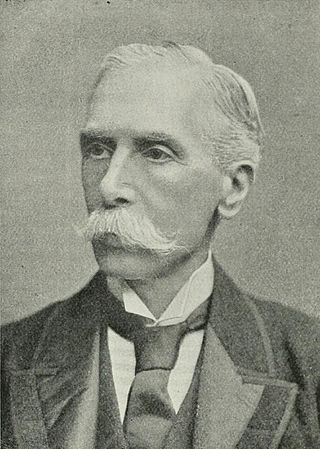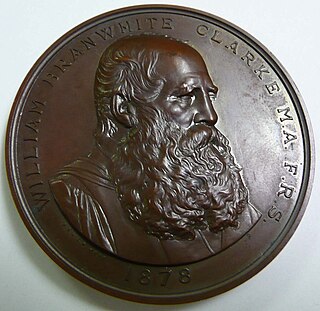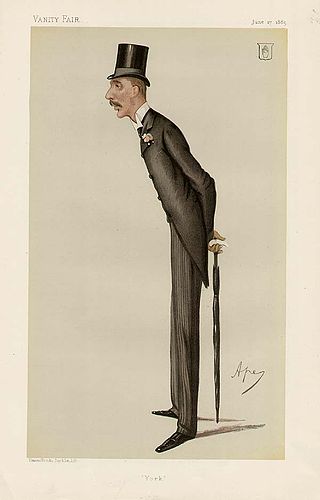Related Research Articles

Alfred Austin was an English poet who was appointed Poet Laureate in 1896, after an interval following the death of Tennyson, when the other candidates had either caused controversy or refused the honour. It was claimed that he was being rewarded for his support for the Conservative leader Lord Salisbury in the General Election of 1895. Austin's poems are little remembered today, his most popular work being prose idylls celebrating nature. Wilfred Scawen Blunt wrote of him, “He is an acute and ready reasoner, and is well read in theology and science. It is strange his poetry should be such poor stuff, and stranger still that he should imagine it immortal.”

The Biographical Dictionary of the Extreme Right Since 1890 is a reference book by Philip Rees, on leading people in the various far right movements since 1890. It contains entries for what the author regards as "the 500 major figures on the radical right, extreme right, and revolutionary right from 1890 to the present" . It was published, as a 418-page hardcover, in New York by Simon & Schuster in 1990 (ISBN 0-13-089301-3).
The Coefficients was a monthly dining club founded in 1902 by the Fabian campaigners Sidney and Beatrice Webb as a forum for British socialist reformers and imperialists of the Edwardian era. The name of the dining club was a reflection of the group's focus on "efficiency".
Leopold James Maxse was an English amateur tennis player and journalist and editor of the conservative British publication, National Review, between August 1893 and his death in January 1932; he was succeeded as editor by his sister, Violet Milner. He was the son of Admiral Frederick Maxse, a Radical Liberal Unionist, who bought the National Review for him in 1893. Before the Great War, Maxse argued against liberal idealism in foreign policy, Cobdenite pacifism, Radical cosmopolitanism and, following the turn of the century, constantly warned of the 'German menace'.

Violet Georgina Milner, Viscountess Milner was an English socialite of the Victorian and Edwardian eras and, later, editor of the political monthly National Review. Her father was close friends with Georges Clemenceau, she married the son of Prime Minister Salisbury, Lord Edward Cecil, and after his death, Alfred Milner, 1st Viscount Milner.

Lord Edward Herbert Gascoyne-Cecil, known as Lord Edward Cecil, was a distinguished and highly decorated English soldier. As colonial administrator in Egypt and advisor to the Liberal government, he helped to implement Army reforms.

The Clarke Medal is awarded by the Royal Society of New South Wales, the oldest learned society in Australia and the Southern Hemisphere, for distinguished work in the Natural sciences.

The Early Birds of Aviation is an organization devoted to the history of early pilots. The organization was started in 1928 and accepted a membership of 598 pioneering aviators.

The Fish family is a prominent American family, members of which became influential in politics, diplomacy, and business. The family is of English origin and is descended from Jonathan Fish (1615–1663), who was born in East Farndon, Northamptonshire, England, and ultimately settled in the Province of New York.

Sir Frederick George Milner, 7th Baronet, was a British Conservative Party politician who sat in the House of Commons from 1883 to 1885, and from 1890 to 1906.
The Outlook was a British weekly periodical, sometimes described as a "review" and sometimes as a "political magazine". The strapline ran on from the title, thus The Outlook: In Politics, Life, Letters, and the Arts. It has been described as the successor to the avant-garde New Review, which had been established in 1889 by W. E. Henley and published works by writers such as Joseph Conrad, Henry James and H. G. Wells before closing in December 1897 due to low circulation figures.
Admiral Frederick Augustus Maxse was a British Royal Navy officer and radical liberal campaigner.
References
- ↑ "Alfred Austin | British poet". Encyclopedia Britannica. Retrieved 6 February 2021.
- ↑ "Cover." The National Review 1, no. 1 (Mar, 1883). ProQuest.
- Hutcheson, John A. (1989). Leopold Maxse and the National Review, 1893–1914: right-wing politics and journalism in the Edwardian era. New York: Garland Publishing Inc. ISBN 0-8240-7818-7.